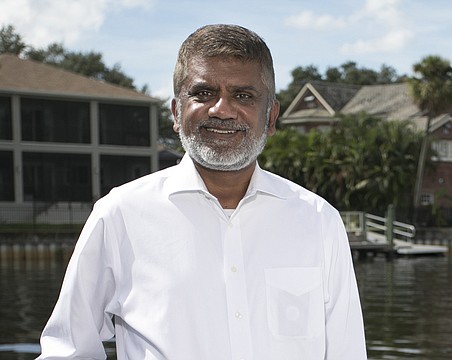Hospitality numbers for the first three months of the year showed Gulf Coast hotels' year-over-year occupancies declined, but average daily rates went up. With several hot spots of hotel development occurring on the Gulf Coast, we asked four leaders in the industry: Is the region in danger of over-saturation? Why or why not?
While there is no doubt that a substantial number of new hotel rooms are now being built in several markets along the Gulf Coast, we aren't overly concerned about the ability of those markets to absorb the new inventory. Virtually all of the new rooms being built are as select service hotels. In fact, Sarasota and Clearwater are the only cities where full service hotels are currently under construction.
For the next few years, demand for rooms along the West Coast of Florida will exceed the supply that is being built. This will allow hotels to continue to charge more for their rooms.
The state's tourism marketing arm, Visit Florida, just reported that the Sunshine State had over 105 million visitors in 2015. With the amount of leisure and business travelers, we would argue that downtown Tampa, downtown St. Petersburg, the Naples beachfront and St. Pete Beach are, in fact, undersupplied. All of these markets often turn down conventions and conferences due to lack of hotel rooms and meeting facilities.
Florida's Gulf Coast would benefit greatly from the addition of new full-service or upscale hotels and resorts that could attract major corporate and association meetings seeking new event venues in walkable settings.
Lou Plasencia
The Plasencia Group, Tampa
Not yet, but there are submarkets that will be interesting to watch. The greater Tampa/St. Petersburg hotel market is the largest on the Gulf Coast, with over 450 hotels. Currently, there are only about three dozen new hotels in various stages of development from pre-planning to construction.
Interestingly, a fourth of those are on Clearwater Beach, which has eight new hotels opening in 2016 and 2017 — four of which will be flagged with Marriott brands. I am more optimistic than many about how quickly these new hotels will be absorbed, because Clearwater Beach has become an exciting and vibrant leisure destination.
There is also notable hotel development in the Sarasota/Bradenton market. With 125 existing hotels, there are more than a dozen in the pipeline, of which seven are scheduled to open in 2016 and 2017. Two of those are near the Mall at University Town Center and Lakewood Ranch.
Downtown Sarasota has four upscale hotels that have just opened or are under construction, and while it is a wonderful place to stay, there are no new substantial demand generators on the horizon. As such, these new hotels will likely pull demand from the Sarasota-Bradenton International Airport hotels.
The Fort Myers/Naples pipeline is fairly modest, especially now that the Grand Resorts development on Fort Myers Beach has been put on hold.
Kent Schwarz
Colliers International, Tampa
I think we'll continue to see more hotel development. Sarasota, in particular, has undergone a major transition since I began development of the Ritz-Carlton, Sarasota downtown in the late 1990s. In 1996, there were virtually no major hotels downtown except a Holiday Inn, where the Westin is now under construction. Lodging was clustered on Longboat Key, Lido Key and Siesta Key. No one could believe I would not want to develop the Ritz-Carlton on one of the keys. People thought I was crazy to select a downtown site next to a Denny's restaurant.
But I have always felt downtown had more to offer in respect to growth. The keys are limited by land and access. I think if anyone believes there is an abundance of hotels they are ignoring what should be obvious: For almost every new hotel, I can name one that's gone. The Holiday Inn and The Colony, both on Longboat Key, are just two. The market has shifted to downtowns, because for many hotel guests, the beach is not important. Also, Sarasota is now a major destination for visitors from all over the world. I think we'll continue to see the trend of fewer hotels on keys in the future and more in Gulf Coast downtowns.
Kevin Daves
Core Development Inc., Sarasota
We have seen overall strong performance on the Gulf Coast over the past several years, and like all expansion phases, it's extremely difficult to perfectly balance supply and demand.
There have been a number of new projects either nearing completion, getting started and others out for financing, which means we will see some supply pressure in the future.
This shouldn't be alarming, as it's been expected. We have had a historically low percentage of new supply entering the market in the U.S. and the development pipeline is playing catch-up. The market tends to overshoot, but the underlying fundamentals should be able to effectively absorb it all in the near- to medium-term.
We believe this is all positive for the Gulf Coast, as the economy benefits when there are more properties spending more overall marketing dollars attracting consumers to a destination.
Gregory Rumpel
JLL, Miami





